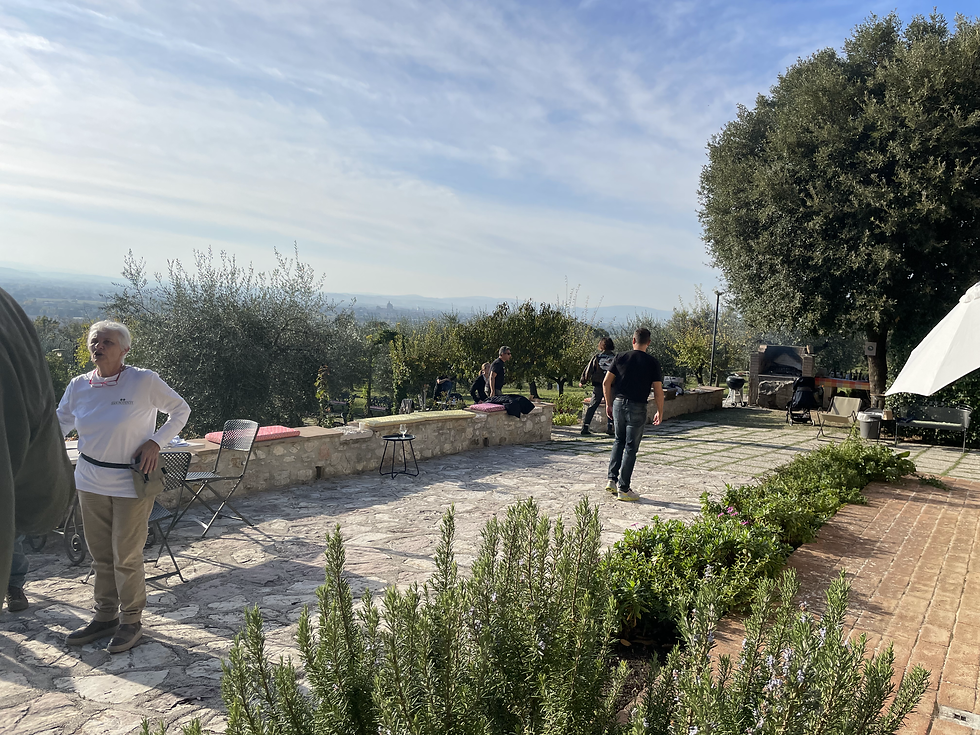la dolce vita
- Katrina Dutt

- Nov 1, 2021
- 3 min read
In my wine-induced calm confidence, I answered Ned with "I'm from New Mexico" and it felt true. During the last few months, I've been wondering when I can call New Mexico—the state that claimed me three years ago—"home" without feeling like a fraud. In group conversations with the people we've met in Italy, it has been easier to nod and say that I'm from New Mexico along with almost everyone in my group. I grew up in Nevada, but since I don't have many deep roots there besides my immediate family and I don't ever see myself living there, it doesn't feel quite right to call it home anymore. But where is home then? Is it the New Mexico that has enchanted me and where I see a future? I asked my New Mexican friends about this, and they said you can call it home "whenever you feel like it."
I think I'm ready.
I pondered these questions of home and identity in the back of my mind as I talked with Ned, a gentleman who gives tours in Rome and who was a fellow guest at Corinna's feast. We had visited three weeks prior to learn about olive harvesting and taste the oil, and now we were gathered with others to celebrate the end of the harvest. It was the epitome of the romanticized version of Italy most Americans crave—and it was real! The wine flowed, as did the fresh olive oil, and it was the perfect autumn day: the afternoon sunshine cured my forlorn desert soul as I soaked up the rays from my seat among the olive trees. Davide (who might've come from an edgy modern-day version of the Princess Bride with his shoulder-length locks and artistic leather jacket) brought us hot bruschetta: the bread had been toasted over the fire, then seasoned with garlic, salt, and copious amounts of olive oil. As we had learned three weeks ago, olives must be pressed the same day they are picked; I could taste how fresh and spicy this oil was, and it makes me think I might be getting too used to the high life. How will Costco olive oil ever compare to only week-old olive oil?

Davide and the "grill men" kept bringing us more and more bruschetta, which I already regret that I had to eventually turn down. A feast in the hills of Assisi is unlike any feast I've imagined; this one included many courses, starting with the chickpea soup that we were all overjoyed to see again. It was comforting and simple in a way that soothes the soul. We also got to try a fava bean puree and greens plate, porchetta sandwiches, and other delights. The afternoon felt so luxurious and laid back, for everyone was simply enjoying the food, the company, and the sun with the sounds of American music in the background and smoke in the air. As the intensity of the sun began to wane, we finished the feast with a caffe, as everyone must, according to Davide. Even after we poured small-by-American-standards cups of coffee (almost double what was proper apparently), he took us into the house to give us the improved versions. He pulled a dark bottle from a high shelf in the kitchen and poured a little Cuban rum into our paper cups. It was indeed improved, and I sipped the last of it lounging beneath the Umbrian sun, well on my way to la dolce vita.

In my conversation with Ned about history and Italy, I learned that there are 540 churches in Rome, and he compared the US to a young cheese and Italy to a mature, aged cheese. He (as have others) told me I don't sound American, which made me come back to my question of the past few weeks: what does it mean to be American? Most people traveling here with me don't say they identify strongly as an American yet we all gravitate toward the Americans we find here in Italy. A South Dakotan has a different idea of the US than I do, but we still share something. In the same way that Italian food is only "Italian food" outside of Italy, we're only American once we step outside the bounds of the US. While expanding my mind and world, traveling has also encouraged me to appreciate my American home and roots more fully. Life is what you make of it, and where you make it.




Comments